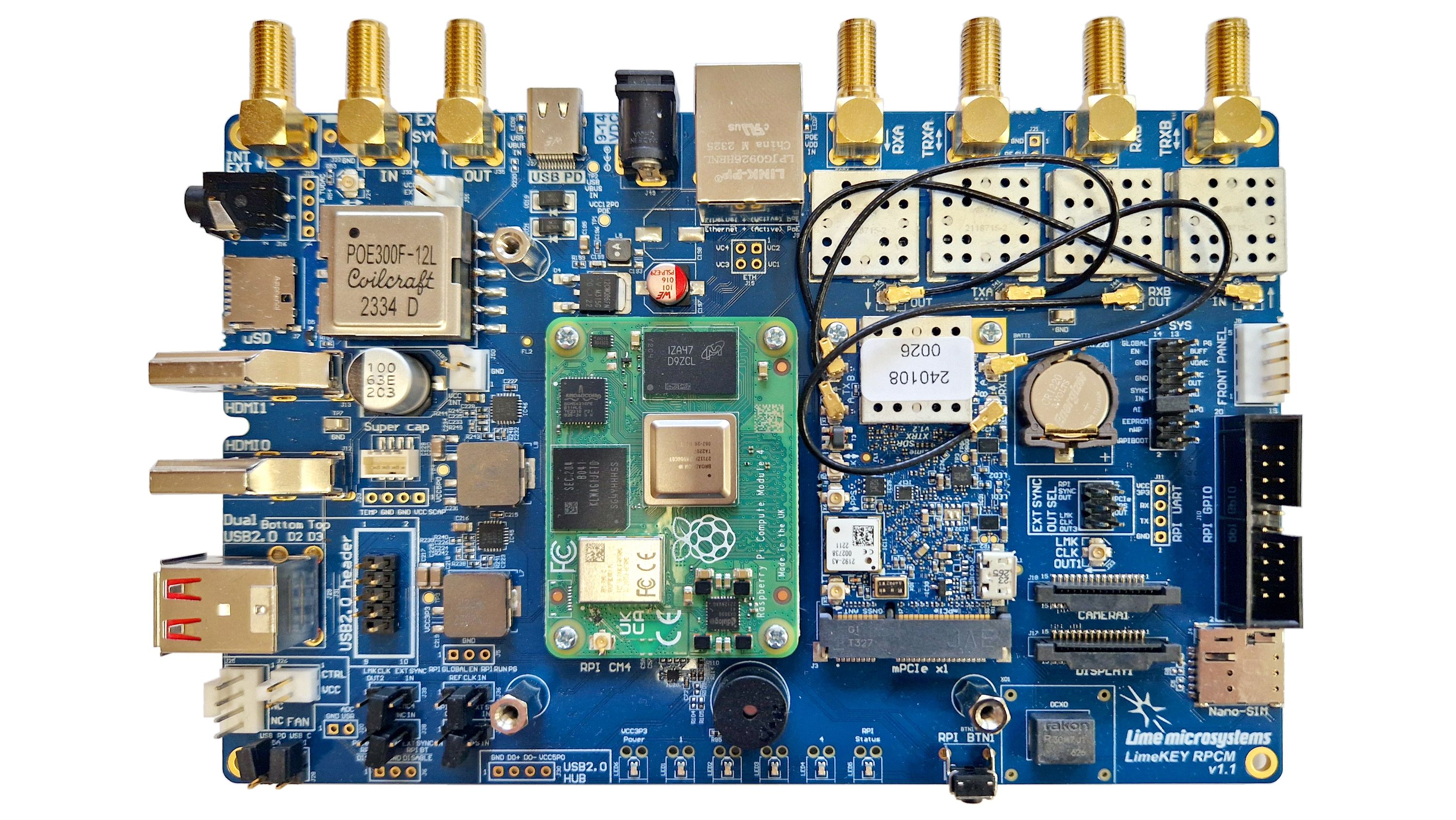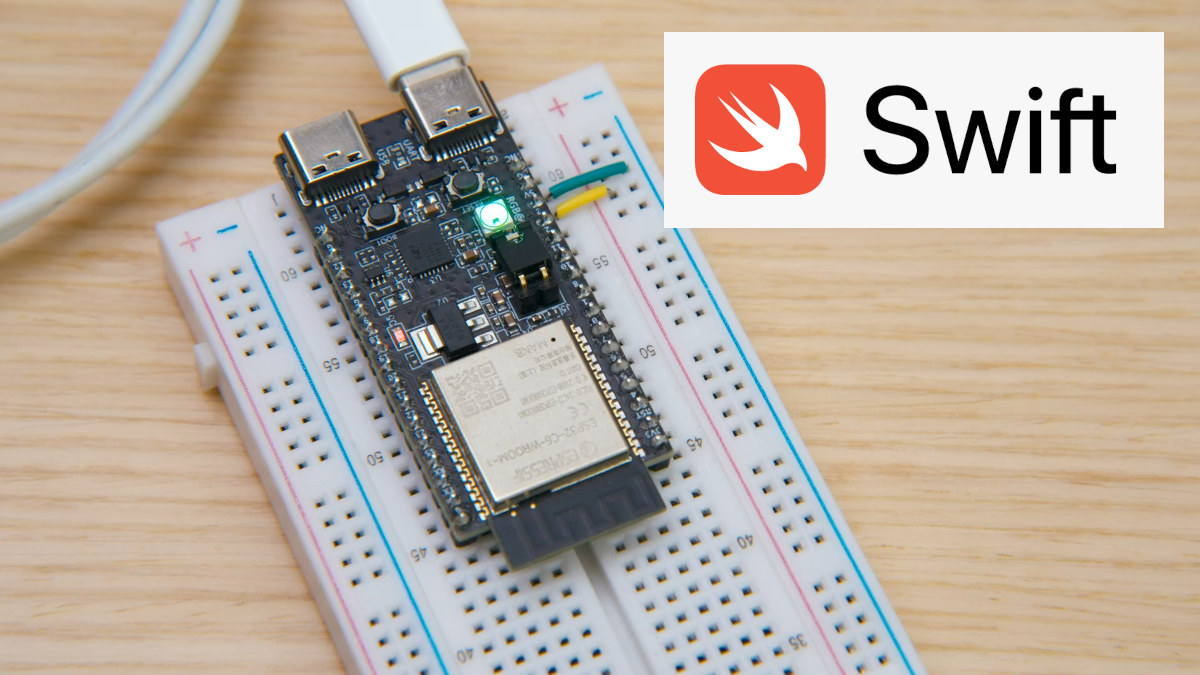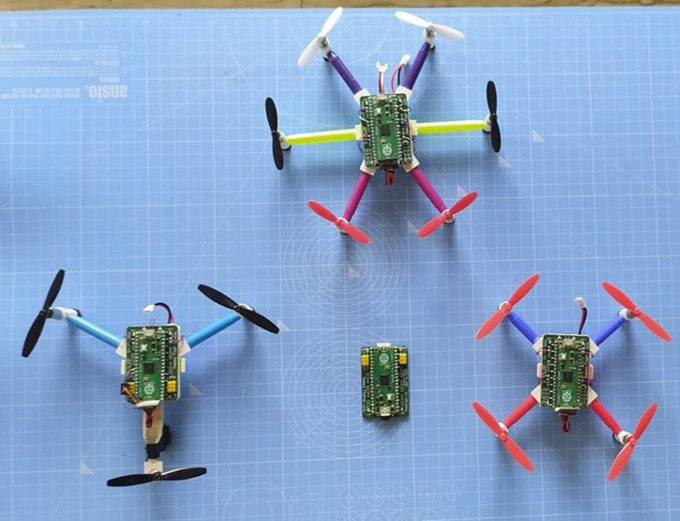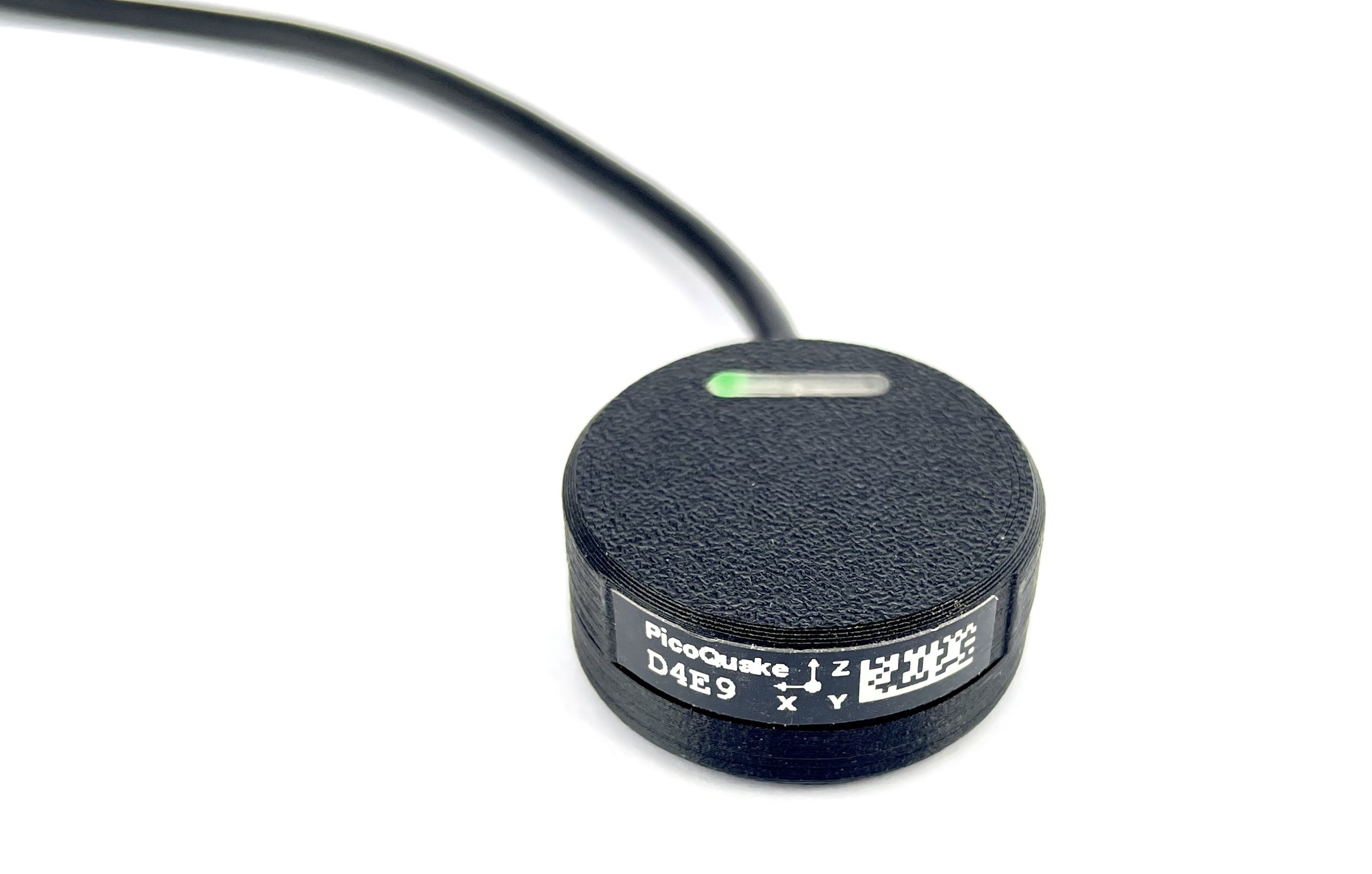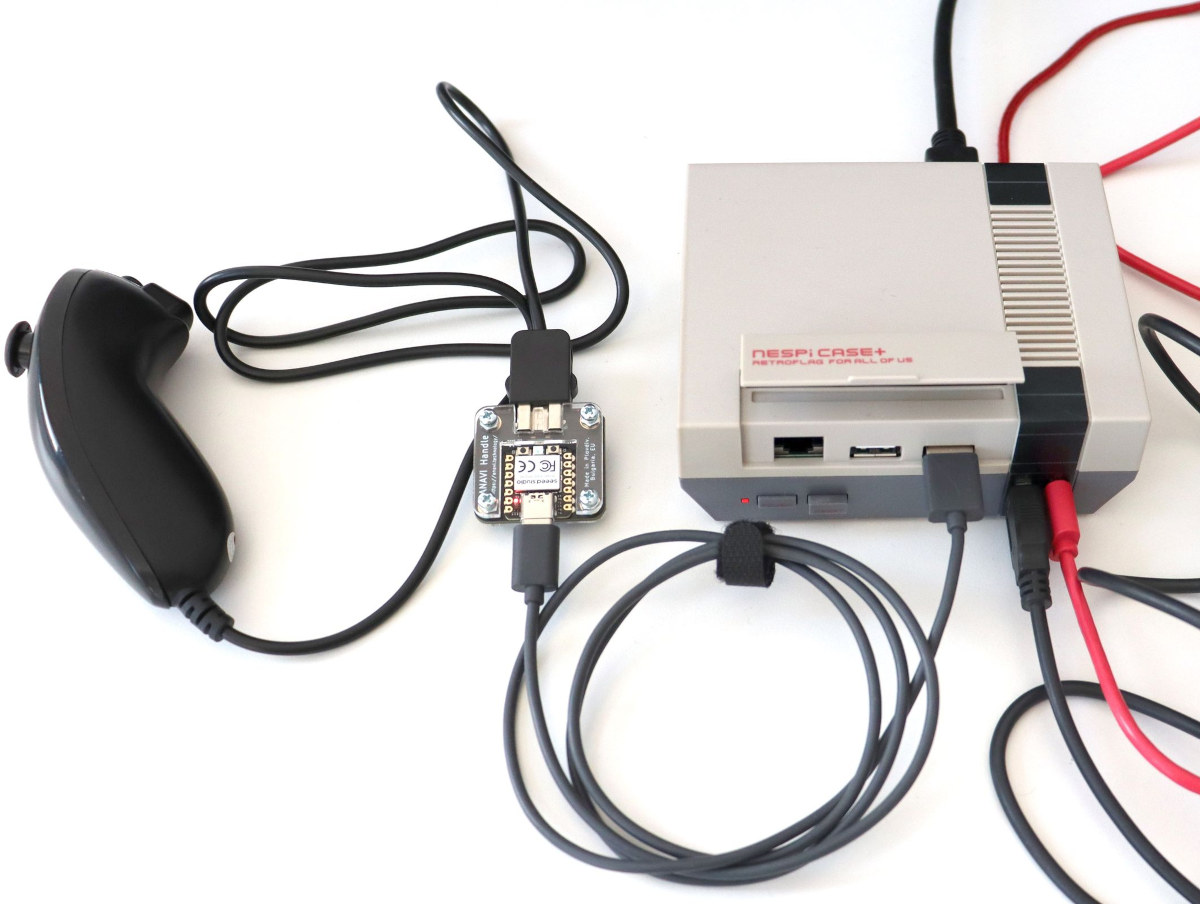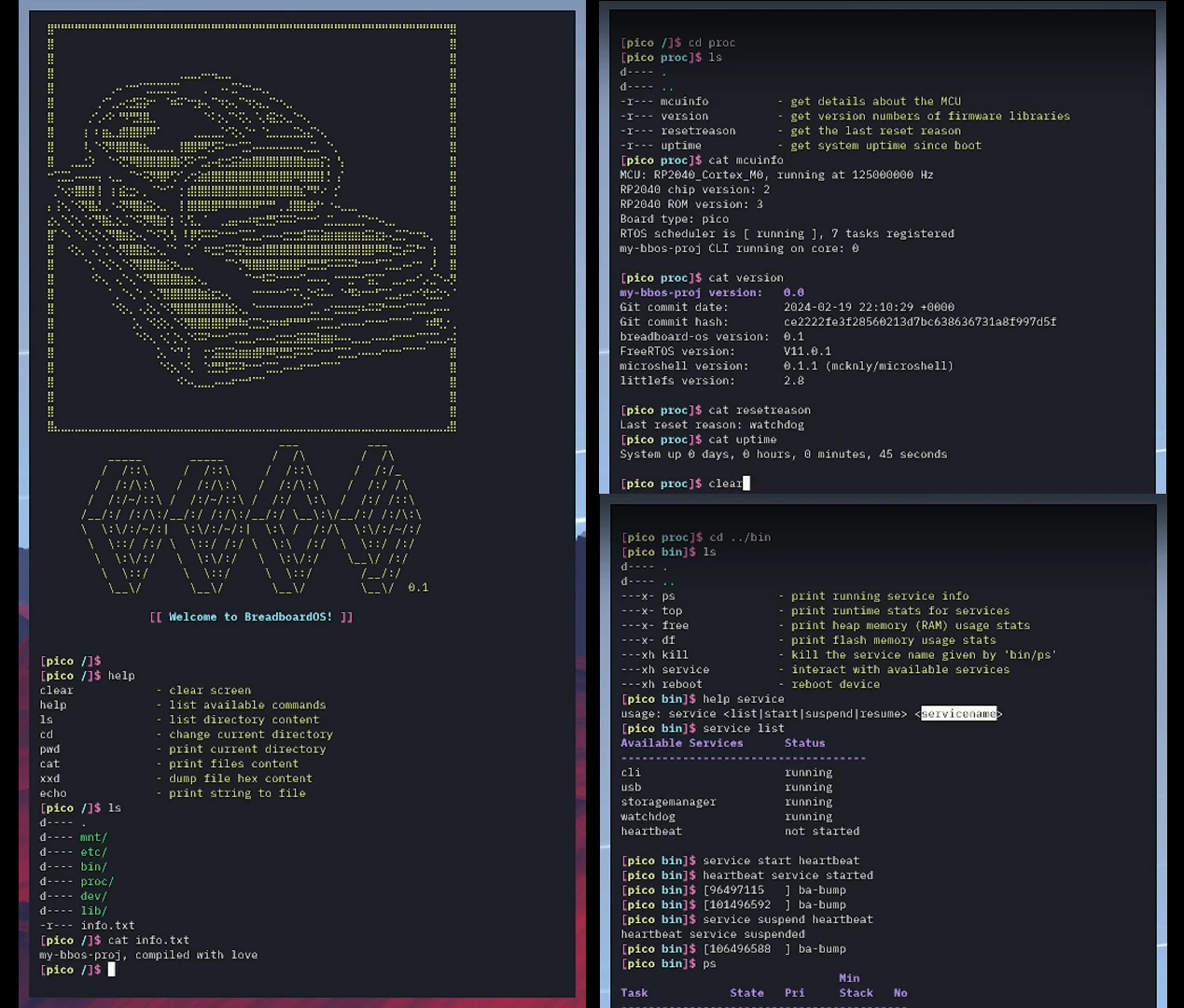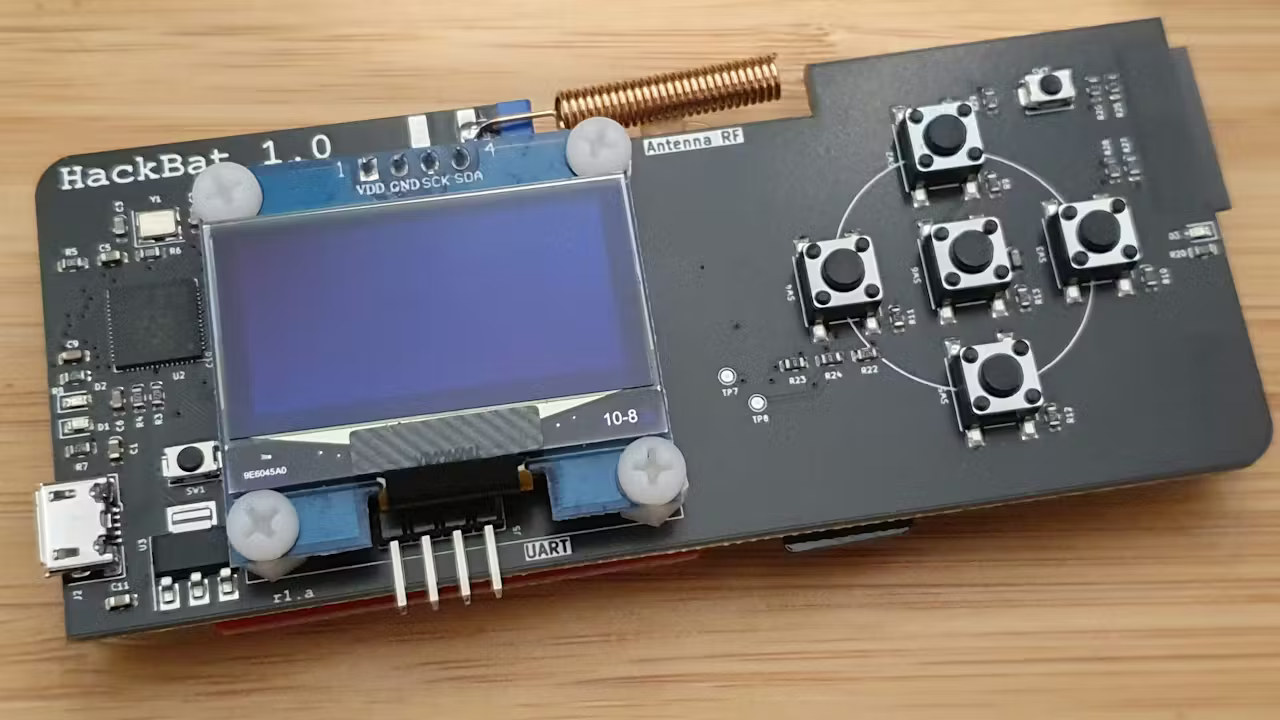The LimeNET Micro 2.0 Developer Edition board is a modular software-defined radio (SDR) platform from Lime Microsystems that is based on the Raspberry Pi Compute Module 4 and the company’s own SDR board, the LimeSDR XTRX. It builds upon previous versions from Lime Microsystems, such as the LimeSDR Mini and LimeSDR Mini 2.0. It features a MIMO (multiple-input, multiple-output) radio and runs the more powerful Compute Module 4, an upgrade from the Raspberry Pi CM3 in earlier versions. The LimeSDR XTRX is an open-source, high-performance SDR in a compact, Mini PCIe form factor. It provides a platform for building logic-intensive digital and RF designs and can be used for MIMO antenna configurations from 2Tx2R to 32Tx32R. The platform is built around a planar system board, the LimePSB RPCM, which integrates the CM4, the XTRX, and other components and interfaces to make a complete baseband + RF solution for diverse wireless […]
Apple’s Embedded Swift programming language supports ESP32-C6, Raspberry Pi RP2040, STM32F7, nRF52840 microcontrollers
Apple has released a beta version of Embedded Swift that notably works with Espressif ESP32-C6 wireless RISC-V microcontroller, and the company also built a Matter sample based on ESP-IDF and ESP-Matter SDKs. Embedded Swift is not limited to the ESP32-C6 and supports other microcontrollers from STMicro, Raspberry Pi, Nordic Semi, etc… Apple Swift programming language is mostly designed for mobile app development, but we’ve also seen it being used on Mad Machine’s SwiftIO board powered by a 600 MHz NXP i.MX RT1052 Arm Cortex-M7 crossover processor and the tiny SwiftIO Micro launched a few years later. The company has now decided to create a subset of the Swift programming language better suited to microcontrollers simply called Embedded Swift that’s currently working on STMicro STM32F746, Raspberry Pi Pico, nRF52840, and ESP32-C6. The “Go small with Embedded Swift” presentation at WWDC 2024 shows how to get started with Embedded Swift using Espressif […]
The RPGA Feather dev board pairs RP2040 chip with a Lattice iCE40 FPGA for sensor fusion projects
Oak Development Technologies’ RPGA Feather board integrates the Raspberry Pi RP2040 microcontroller with the iCE5LP4K FPGA from Lattice Semiconductor into a compact development board in the Adafruit Feather form factor. The iCE5LP4K FPGA is an ultra-low-power chip in the iCE40 Ultra product family designed for mobile applications such as smartphones, tablets, and handhelds, while the Raspberry Pi RP2040 microcontroller makes it much easier to program the FPGA using CircuitPython. We have seen Oak Development Technologies’ earlier forays into FPGA Feather-compatible products such as the IcyBlue board (also based on iCE5LP4K FPGA) and the Lattice FeatherWing. RPGA Feather specifications: MCU – Raspberry Pi RP2040 dual-core Cortex-M0+ microcontroller @ 133 MHz with 264KB SRAM FPGA – Lattice Semiconductor iCE5LP4K FPGA Logic Cells – 3,520 logic cells Memory 80 Kbits of embedded Block RAM (EBR) Distributed RAM: 640 bits 2x hardware I2C blocks and 2x hardware SPI blocks 26 I/Os for customized interfaces […]
PiWings 2.0 is a tiny drone based on Raspberry Pi Pico and ESP8266 WiFi module (Crowdfunding)
SB Components’ PiWings 2.0 is a small drone combining a Raspberry Pi Pico with an ESP8266 WiFi module (ESP-12E) for wireless connectivity, and designed for STEM education and drone enthusiasts. The PiWings 2.0 board supports up to six motors and four servos, includes a 6-axis IMU for auto-leveling, and features I2C, SPI, UART, and GPIO expansion ports for custom sensor and/or actuator support. The drone itself is offered with three, four, or six rotors. PiWings 2.0 key features and specifications: Microcontroller board – Raspberry Pi Pico with Raspberry Pi RP2040 dual-core Cortex-M0+ microcontroller, 264KB SRAM Wireless module – ESP-12E (ESP8266) WiFi module for iBus support Motor Drivers – 6 channels (3A DC) Servo Motors – 4 channels USB – 1x micro USB port (on Raspberry Pi Pico) Expansion – I2C, SPI, UART, GPIO ports Sensor – On-board 6-axis IMU (MPU6050) for auto-leveling Misc – 4x RGB LEDs Power Supply 3V […]
PicoQuake USB vibration sensor is based on the RP2040 MCU and the ICM-42688-P vibration sensor
The PicoQuake is a USB vibration sensor with a MEMS accelerometer covering a wide range of vibrations. It is capable of capturing vibrations in the low-frequency range (tall buildings, bridges) to the high-frequency range (motors, industrial machinery). It can operate as a standalone device and connect to a computer via a USB cable. Furthermore, it is based on the Raspberry Pi RP2040 microcontroller and uses a low-noise MEMS inertial measurement unit, the TDK InvenSense ICM-42688-P, which combines a 3-axis gyroscope and a 3-axis accelerometer. The low-noise IMU sensor used enables the PicoQuake to profile vibrations of very low magnitude. The PicoQuake sensor is a product from Slovenian maker, PLab, just like the FOCn driver module we took a look at recently. Potential use cases for the PicoQuake include optimizing brushless DC motor vibrations (important in small mobility products such as electric bikes and scooters), tracking trackpad clicks, smart home automation, […]
Use your Nintendo Wii Nunchuk as a USB controller with ANAVI Handle open-source hardware adapter (Crowdfunding)
Leon ANAVI has launched another open-source hardware project with the ANAVI Handle that transforms the Nintendo Wii Nunchuck into a USB controller meaning the Wii controller can now be used with any common hardware such as computers, laptops, single board computers, retro-gaming consoles, and so on. The ANAVI Handle is built around the Seeed Studio XIAO RP2040 module based on Raspberry Pi RP2040 microcontroller and converts the Wii Nunchuck with a custom port carrying I2C signals into a standard USB HID device that works without any extra drivers. ANAVI Handle specifications: MCU module – XIAO RP2040 MCU – Raspberry Pi RP2040 dual-core Cortex-M0 processor at 133MHz and 264kB RAM. Storage – 2MB SPI flash USB – 1x USB type C port for power and data Misc – Reset button, boot button, some LEDs PCB Nunchuck connector with I2C signal Dimensions – 35.0 x 33.3 mm OSHWA certification – BG000134 ANAVI […]
BreadboardOS firmware for the Raspberry Pi RP2040 features a Linux-like terminal
Cavin McKinley’s BreadboardOS is an open-source firmware platform for the Raspberry Pi RP2040 MCU (for now) built around FreeRTOS and with a feature-packed CLI that reminds me of the Linux terminal.
The terminal implementation is based on a fork of the microshell project with some additional customization. It is organized into POSIX-style folders/files providing a familiar user interface for interacting with the hardware on the MCU.
BreadboardOS running on Raspberry Pi Pico board
BreadboardOS highlights:
FreeRTOS-based
Tools for checking system resources such as ps, top, free, and df commands
Interaction with chip I/O and serial buses from the terminal using commands such as cat and echo, for example, you can print the list of GPIOs with:
HackBat – DIY open-source hardware Flipper Zero alternative features Raspberry Pi RP2040 MCU, ESP8266 WiFi module, RF transceiver…
HackBat is an open-source hardware pen-testing device designed for hackers and makers and equipped with a Raspberry Pi RP2040 microcontroller, an ESP8266 WiFi module, a sub-GHz RF transceiver, NFC, an OLED display, and more… It’s basically a DIY alternative to the popular Flipper Zero wireless hacking tool, that you can produce and assemble yourself. The Flipper Zero was the victim of its own success with the Canadian government (wrongly) claiming it could easily be used for car theft and planning to ban it (status still unclear right now), so Flipper Zero alternatives such as the M1 multitool device got some traction as backup solutions with some extra features. But any closed-source device could eventually be banned, something that’s close to impossible for an open-source hardware device like the HackBat although policymakers could still decide to impose heavy fines if they wanted to make this type of device illegal… HackBat key […]


